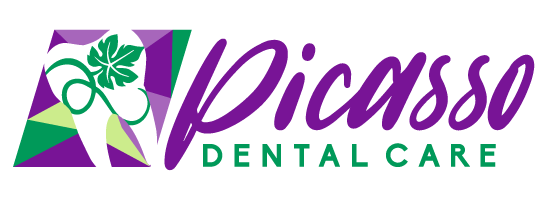Bad Breath (Halitosis) Treatment
Temecula, CA
Bad Breath (Halitosis) Treatment provided by Dr. Vinh Le
and Dr. Quang Le
in Temecula, CA at Picasso Dental Care
 Halitosis, or bad breath, can stem from inadequate oral hygiene, but it is not always the sole reason. Other factors contributing to halitosis include dry mouth, heartburn, or underlying health issues elsewhere in the body. Halitosis, or bad breath, can stem from inadequate oral hygiene, but it is not always the sole reason. Other factors contributing to halitosis include dry mouth, heartburn, or underlying health issues elsewhere in the body.
At Picasso Dental Care, we know that treating halitosis involves addressing its root cause. We are here to help you achieve a healthy and beautiful smile.
What Is Halitosis and What Causes it?
Halitosis, which is the medical term for bad breath, can be experienced by everyone, especially after consuming solid foods such as garlic or onions. However, persistent bad breath, known as chronic halitosis, might indicate an oral health problem or a condition affecting another part of the body.
Consider halitosis as a symptom indicating various conditions, acting as a signal from your body. Pinpointing the underlying cause of halitosis is crucial for effective treatment.
The primary culprit behind halitosis is often poor oral hygiene. In the absence of proper dental care routines such as regular brushing, flossing, and dental cleanings, harmful bacteria can thrive and multiply in your mouth. This can result in a range of oral health issues, including bad breath, cavities, and gum disease.
Conditions That Lead to Bad Breath
Various other factors besides poor dental hygiene can contribute to bad breath. Some of the issues could be severe life-threatening conditions that need urgent care. This is why those who suffer from bad breath need to see a dentist immediately. Among the common causes of chronic bad breath are:
Dry Mouth from Insufficient Saliva
Saliva plays a crucial role in cleansing the mouth. If your body does not produce enough saliva, it can result in halitosis. Dry mouth can be caused by smoking, which also heightens the risk of gum disease. Certain medications can also lead to dry mouth.
Tonsil Stones
Hardened calcium deposits, known as tonsil stones or tonsilloliths, can form when food particles become trapped in the tonsils located at the back of the throat. They can result in discomfort in your throat when swallowing food. They may also be painful and result in bad breath.
Head and Neck Cancer
Symptoms of oral or oropharyngeal cancer, located between the nose and mouth, may include persistent sores, mouth discomfort, difficulty swallowing, a neck lump, and unexplained weight loss. If you are experiencing any of these symptoms and bad breath, you need to see a dentist urgently.
Gum Disease
Gingivitis, or gum disease, is characterized by inflamed gums that may bleed, and is caused by plaque buildup on teeth. If left untreated, gingivitis can progress to periodontitis, resulting in gum and bone loss around the teeth.
Trench mouth, an advanced form of gum disease, can cause severe pain, bleeding, fever, and fatigue. The term trench mouth originated from its prevalence among soldiers in World War I trenches. This condition is among the most common causes of bad breath.
Liver Disease or Kidney Disease
Typically, the liver and kidneys eliminate toxins from the body. However, in individuals with liver or kidney disease, these toxins can accumulate, resulting in halitosis.
Gastroesophageal Reflux Disease (GERD)
This digestive disorder occurs when stomach acid or fluid leaks back into the esophagus, the tube connecting the mouth and stomach. This condition can lead to bad breath, but it can be temporary. If bad breath persists, you need to get in touch with a mouth or dental expert.
Treatment Options for Halitosis
To mitigate halitosis, prevent tooth decay, and diminish the likelihood of gum problems, it is essential to maintain oral hygiene consistently. Treatment for halitosis may vary depending on its underlying causes.
If Dr. Vinh Le or Dr. Quang Le suspects that another health issue is contributing to your bad breath, you may need to consult your primary healthcare provider or a specialist.
Your dentist will collaborate with you to address bad breath stemming from oral issues. Dental interventions may encompass the following:
Use Mouthwashes and Toothpaste
If your halitosis results from bacterial plaque accumulation on your teeth, your dentist might suggest a mouthwash that eradicates these bacteria. Additionally, they may recommend toothpaste with antibacterial properties to combat plaque-causing bacteria.
Management of Dental Conditions
If you have gum disease, your dentist may advise you to visit a periodontist, a specialist in gum health. Gum disease can lead to gum recession, forming pockets where foul-smelling bacteria accumulate. Professional cleaning may be necessary to eliminate these bacteria. Your dentist may also suggest replacing defective fillings, which can harbor bacteria.
Tips and Remedies for Bad Breath at Home
Bad breath can be managed at home by using various remedies. Dentists may even give suggestions for some remedies to use at home. They will also provide tips for maintaining proper oral hygiene to promote fresh breath. The standard recommendations for treating bad breath are:
Brushing After Meals
Keep a toothbrush at work for after-meal brushing. Use a fluoride toothpaste at least twice a day, especially after eating. Toothpaste with antibacterial properties can help reduce bad breath.
Clean Your Tongue
Bacteria can collect on your tongue, so carefully brush it to reduce odors. A tongue scraper might be helpful, especially for those with a coated tongue due to factors like smoking or dry mouth.
Watch Your Diet
Foods like onions, garlic, and sugary treats can contribute to bad breath. Be mindful of what you eat.
Change Your Toothbrush
Replace your toothbrush every three to four months or sooner if it becomes worn. Opt for a soft-bristled toothbrush for gentler cleaning.
Maintain Oral Appliances
If you wear a bridge, denture, retainer, or mouth guard, clean it thoroughly daily after use. This way, you can keep bacteria at bay.
Practice Dental Flossing Daily
Proper flossing removes food particles and plaque between your teeth. Removing decaying food particles helps to control bad breath.
Keep Your Mouth Moist
Avoid tobacco and stay hydrated by drinking plenty of water. Limit caffeine, spicy foods, and alcohol, as they can dry out your mouth. Chewing sugarless gum or sucking on candy can stimulate saliva production. For persistent dry mouth, your healthcare provider may recommend artificial saliva products or medications to increase saliva flow.
Regular Dental Checkups
Visit your Temecula dentist twice a year for checkups. They can examine your teeth, dentures, or other oral appliances and provide professional cleaning.
Schedule with Your Dentist in Temecula, CA Today!
Bad breath can be a cause for embarrassment. Those who suffer from this condition shy away from laughing and smiling freely. This is why you should get the condition addressed immediately. At Picasso Dental Care, our goal is to help you regain your confidence. Our approach to bad breath is confronting the root cause. You can start your treatment today by booking an appointment online or calling (951) 383-2021 for more information. |
